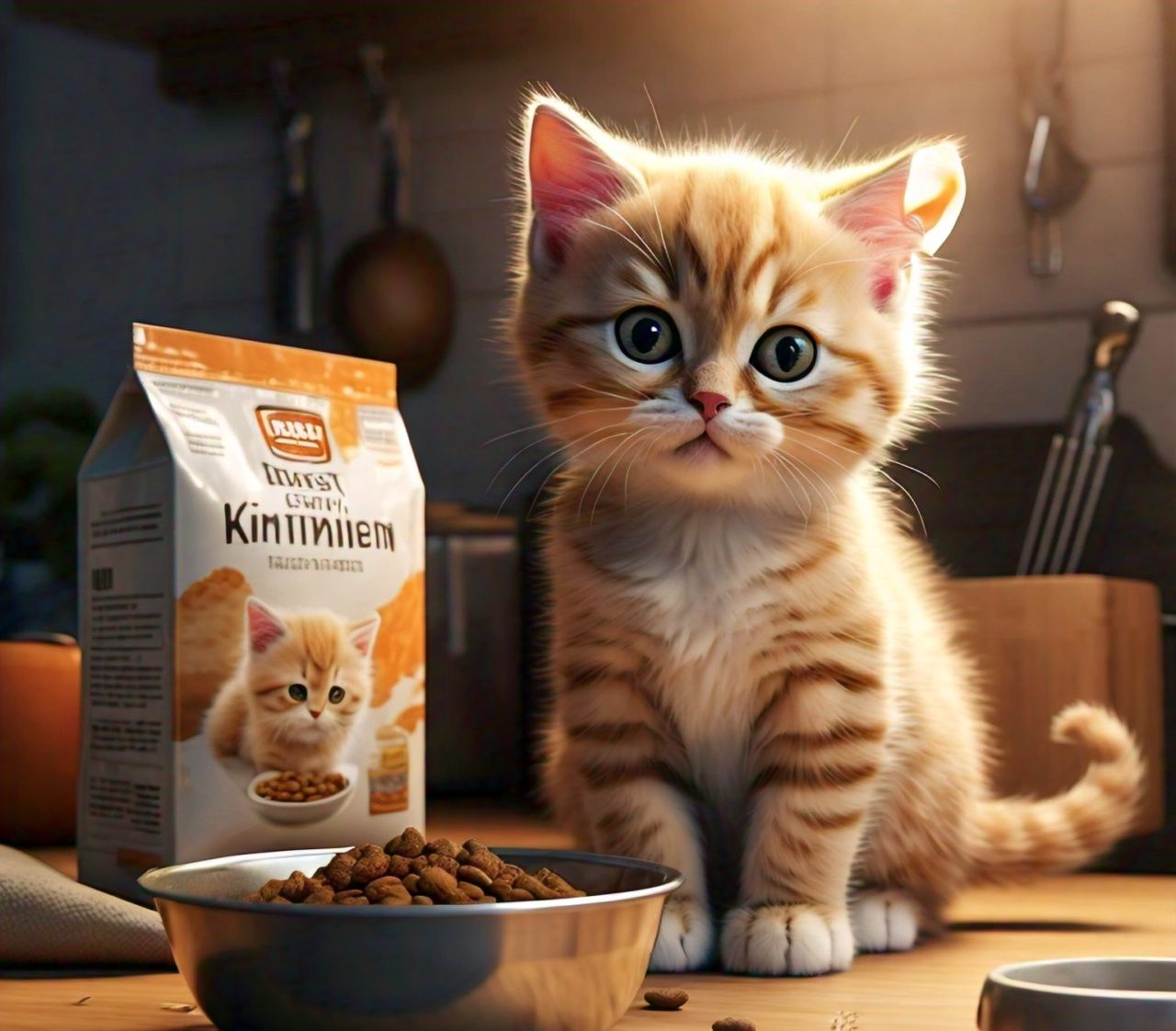Introduction to Kitten Food
When you welcome a new kitten into your home, ensuring they receive proper nutrition is crucial for their growth and development. Kitten foods plays a vital role in providing the necessary nutrients, vitamins, and minerals required for a healthy start in life. This guide will explore the essentials of choosing the right kitten food, the differences between wet and dry options, and tips for feeding your new feline friend.
The Importance of Kitten Food
Kitten food is specially formulated to meet the unique nutritional needs of young cats. Unlike adult cats, kittens require higher levels of protein, fat, and certain vitamins and minerals to support their rapid growth and high energy levels. A well-balanced diet during the first year of life sets the foundation for a healthy adulthood, making the selection of the best kitten food essential.

Wet vs. Dry Kitten Food: Which is Better?
Choosing between wet and dry kitten food can be a challenge for new pet owners. Both types have their advantages and can be included in your kitten’s diet to provide a well-rounded nutritional profile.
Benefits of Wet Kitten Food
Wet kitten food typically has higher moisture content, which helps keep kittens hydrated and supports urinary tract health. It often contains fewer carbohydrates and more animal-based proteins, making it a nutrient-dense option for growing kittens. The soft texture of wet food can make it easier for kittens to chew and digest, especially for those transitioning from mother’s milk to solid food.
Advantages of Dry Kitten Food
Dry kitten food is convenient to store and can be left out for more extended periods without spoiling. It benefits dental health as the crunchy texture helps reduce plaque and tartar buildup. Additionally, dry food can be more cost-effective and provide an easy way to manage portion control. Many pet owners mix wet and dry kitten food to offer variety and ensure balanced nutrition.
Key Ingredients to Look for in Kitten Food
When selecting kitten food, it’s essential to examine the ingredients list to ensure your kitten receives the best possible nutrition. High-quality kitten food should include:
High-Quality Proteins
Kittens need protein for muscle development and energy. Look for kitten food that lists real meat, poultry, or fish as the primary ingredient. Animal-based proteins are more digestible and provide essential amino acids that plant-based proteins might lack.
Essential Fatty Acids
Omega-3 and omega-6 fatty acids are crucial for healthy skin and coat development. Fish oil and flaxseed are common sources of these essential nutrients in kitten food.
Vitamins and Minerals
Vitamins like A, D, E, and minerals such as calcium and phosphorus are vital for bone growth and overall health. Make sure the kitten food includes these nutrients to support your kitten’s development.
Limited Fillers and Additives
Avoid kitten food with excessive fillers like corn, wheat, and soy, which offer little nutritional value. Opt for brands that prioritize whole, natural ingredients over artificial preservatives and colors.
How to Transition to Kitten Foods
Transitioning your kitten to solid food should be done gradually to avoid digestive upset. Start by mixing a small amount of kitten food with their current diet and slowly increase the proportion of the new food over a week or two. Observe your kitten for any signs of digestive distress, such as diarrhea or vomiting, and consult your veterinarian if any issues arise.
Understanding Kitten Foods Labels
Reading and understanding the labels on kitten food packaging is essential for making an informed choice. Look for labels that indicate the food meets the nutritional levels established by the Association of American Feed Control Officials (AAFCO) for kittens. This certification ensures the food provides balanced and complete nutrition.
Homemade Kitten Foods: Pros and Cons
Some pet owners prefer to prepare homemade kitten food to have more control over the ingredients. While this approach can be beneficial, it’s crucial to ensure the homemade diet is nutritionally balanced. Consulting with a veterinarian or a pet nutritionist is advisable to avoid deficiencies or imbalances in your kitten’s diet.
Benefits of Homemade Kitten Foods
Homemade kitten food allows for customization to meet specific dietary needs or preferences. It can be free from preservatives and additives commonly found in commercial foods, offering a more natural diet.
Challenges of Homemade Kitten Foods
Preparing homemade kitten food can be time-consuming and requires a thorough understanding of feline nutrition. Ensuring a balanced diet with all necessary nutrients can be challenging without professional guidance.
Tips for Feeding Kitten Foods
Establishing a consistent feeding routine helps promote healthy eating habits. Kittens typically require multiple small meals throughout the day due to their high energy levels and small stomachs. Follow the feeding guidelines on the kitten food packaging and adjust portions based on your kitten’s growth and activity level and stay connected to DailyBloggerNews.
Conclusion
Choosing the right kitten foods is a crucial step in ensuring your kitten grows into a healthy and happy adult cat. By understanding the nutritional needs of kittens, the benefits of different types of food, and how to read labels, you can make informed decisions that will support your kitten’s development. Whether you opt for wet, dry, or homemade food, providing balanced and nutritious meals will set the foundation for your kitten’s lifelong health and well-being and stay connected to DailyBloggerNews.
Frequently Asked Questions
What is the best type of kitten foods?
The best type of kitten food depends on your kitten’s preferences and needs. Both wet and dry foods have their benefits. Wet food provides hydration and higher protein content, while dry food supports dental health and is convenient for free-feeding.
How often should I feed my kitten?
Kittens typically need to be fed 3-4 times a day. As they grow, you can gradually reduce the number of feedings. Follow the guidelines on your kitten food packaging and adjust based on your kitten’s growth and activity level.
Can I feed my kitten adult cat food?
It’s not recommended to feed kittens adult cat food, as it does not provide the necessary nutrients required for their growth and development. Always choose food specifically formulated for kittens.
When should I switch from kitten food to adult cat food?
Kittens can typically transition to adult cat food around their first birthday. However, the exact timing can vary depending on the breed and individual growth rates. Consult your veterinarian for personalized advice.
Is homemade kitten food better than commercial food?
Homemade kitten food can be beneficial if properly balanced, but it requires a thorough understanding of feline nutrition. Commercial kitten foods are formulated to meet all nutritional requirements and are a convenient and reliable option for most pet owners.
 Daily Blogger News Stay updated with the latest trends and insights. Your reliable source for daily updates and information.
Daily Blogger News Stay updated with the latest trends and insights. Your reliable source for daily updates and information.






